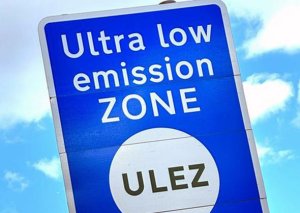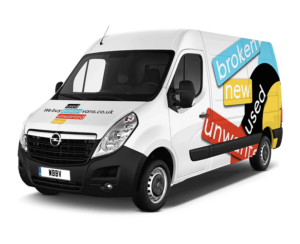 Introduction
Introduction
The Ultra Low Emission Zone (ULEZ) in London, designed to curb vehicle emissions and improve air quality, has significant implications for small businesses, especially those reliant on transportation. This article delves into the impact of ULEZ on small businesses, exploring the challenges they face, the support measures available, their economic impact, and the opportunities and policy recommendations to help them adapt and thrive in this evolving landscape.
Challenges for Small Businesses
ULEZ presents a range of challenges for small businesses. The most immediate is the increased operational costs associated with compliance. Businesses that rely on older, non-compliant vehicles face daily charges of £12.50, which can quickly add up. Additionally, the need to upgrade to compliant vehicles involves substantial upfront costs. For small businesses operating on tight margins, these financial pressures can be daunting. Logistics and delivery services are particularly hard hit, as their operations depend heavily on vehicle use.
Support Measures
To help small businesses navigate these challenges, several support measures have been introduced. The Mayor of London’s scrappage scheme offers grants to small businesses and sole traders to replace older, non-compliant vehicles. Low-interest loans are also available to facilitate the purchase of compliant vehicles. Additionally, businesses can benefit from advisory services to help them understand their options and plan their transition. These measures are designed to alleviate some of the financial burdens and make compliance more attainable.
Case Studies
Consider the case of a small catering company in Central London. Initially, the company struggled with the daily ULEZ charges for its fleet of delivery vans. However, by utilizing the scrappage scheme and securing a low-interest loan, the company was able to upgrade its fleet to electric vehicles. This transition not only saved them from daily charges but also reduced their fuel and maintenance costs. Another example is a local plumbing business that opted for a hybrid vehicle to balance the need for a compliant, reliable work van while managing costs effectively. Both businesses highlight the importance of strategic planning and leveraging available support measures to adapt successfully.
Economic Impact
The economic impact of ULEZ on small businesses is multifaceted. In the short term, the costs of upgrading vehicles and potential disruptions to operations can strain finances. However, in the long term, businesses can benefit from lower operating costs due to fuel savings and reduced maintenance needs for newer, cleaner vehicles. Moreover, businesses that adapt early can gain a competitive edge by positioning themselves as environmentally conscious, which is increasingly important to consumers and clients. The long-term benefits of improved air quality and public health also contribute to a healthier business environment overall.
Opportunities for Growth
ULEZ also presents unique opportunities for growth. The push for compliance has created new markets for clean vehicle technology and related services. Small businesses specializing in electric vehicle maintenance, charging infrastructure, and green logistics can capitalize on the growing demand. Additionally, businesses that demonstrate environmental responsibility can attract eco-conscious customers and clients, potentially opening up new revenue streams. The transition to cleaner vehicles and practices can also foster innovation, driving business development and sustainability.
Policy Recommendations
To further support small businesses in their transition to ULEZ, several policy recommendations can be made. Increased financial assistance, such as larger grants and more favorable loan terms, would help businesses manage the upfront costs of compliance. Streamlined regulatory processes can reduce administrative burdens and make it easier for businesses to navigate the transition. Additionally, targeted outreach and education campaigns can ensure that businesses are aware of available support and understand the benefits of compliance. Collaboration between government and business associations can also facilitate the sharing of best practices and success stories.
Future Prospects
Looking ahead, the future prospects for small businesses under ULEZ are promising but require ongoing adaptation. Potential expansions of the ULEZ zone and stricter emissions standards will necessitate continuous investment in cleaner technologies. Businesses that stay ahead of these changes by embracing sustainability and innovation will be better positioned to thrive. As public awareness of environmental issues grows, businesses that align with these values will likely see increased customer loyalty and market opportunities.
Conclusion
The resilience of small businesses in adapting to ULEZ is a testament to their ingenuity and determination. While the transition poses significant challenges, the available support measures, coupled with strategic planning and a focus on sustainability, can turn these challenges into opportunities. Continued investment in financial assistance, regulatory simplification, and community engagement is essential to support small businesses in their journey towards compliance. By doing so, we can ensure that the benefits of ULEZ are shared across all sectors, fostering a cleaner, healthier, and more sustainable urban environment.




